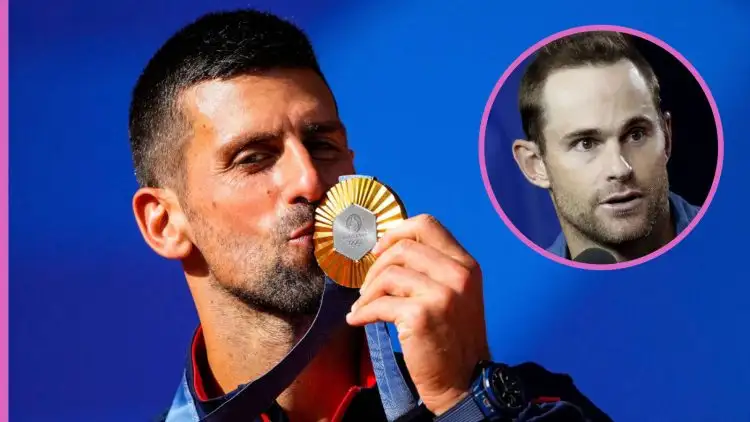BREAKING:Former world No 1 disagrees with gold medallist Novak Djokovic over…

Former world No 1 disagrees with gold medallist Novak Djokovic over Olympics comments
Novak Djokovic, a former world No. 1 and one of tennis’s most accomplished players, recently declared his victory at the Paris Games as the pinnacle of his career.
Djokovic, who secured a gold medal in singles at the Olympics by defeating Carlos Alcaraz, made history by becoming the fifth player ever to achieve a career Golden Slam—winning all four Grand Slam titles and an Olympic gold medal.
For Djokovic, this victory in Paris stands out as “probably the biggest sporting success” of his career, surpassing even his previous milestones.
Djokovic’s assertion came after years of striving to reach the top of the Olympic podium.
He had faced repeated disappointments in previous Olympics, managing only a bronze medal in his first appearance and subsequently missing out on a medal despite reaching three semi-finals. The Paris Games victory, particularly at the age of 37 and against a 21-year-old opponent who is arguably the best player in the world right now, was a significant achievement for Djokovic.
Reflecting on this win, Djokovic noted that carrying the flag for his country during the 2012 Olympic opening ceremony had been his best athletic experience—until now.
This victory, he said, surpassed everything he had imagined or hoped to feel in his career.
However, not everyone in the tennis world shares Djokovic’s sentiment about the Olympics’ importance relative to other achievements in the sport. Andy Alcaraz
, also a former world No. 1, offered a different perspective on the “Olympics versus the Grand Slams” debate.
Roddick suggested that the Olympics do not hold as significant a place in the hierarchy of tennis achievements compared to Grand Slam titles.
While Roddick acknowledged Djokovic’s tremendous accomplishment, his stance underscores a broader discussion within the tennis community about the relative importance of Olympic success compared to Grand Slam victories.
The debate touches on a fundamental question: what constitutes the ultimate achievement in a tennis player’s career? For Djokovic, the emotional and personal significance of winning Olympic gold, especially after multiple previous failures and at an advanced stage in his career, made it his crowning achievement.
His victory in Paris was not just about adding another title to his collection but overcoming a challenge that had eluded him for years.
In his view, this triumph, at this stage of his career, marked the peak of his sporting success.
On the other hand, Roddick’s view reflects a different perspective, one that perhaps aligns more closely with traditional tennis values where Grand Slam titles are typically seen as the ultimate measure of a player’s success. The four Grand Slam tournaments—Wimbledon, the US Open, the French Open, and the Australian Open—are considered the most prestigious events in the sport, often defining a player’s legacy. While Olympic success is undoubtedly a significant achievement, especially given the global stage it provides, it does not necessarily carry the same weight as a Grand Slam title in the eyes of all players and analysts.
This divergence in views highlights the subjective nature of success in sports. While Djokovic places his Olympic gold medal at the top of his career achievements, others like Roddick may view Grand Slam victories as more indicative of a tennis player’s greatness. The debate is likely to continue as different players and fans weigh the importance of various milestones in the sport. Ultimately, the value placed on these achievements may vary depending on personal experiences, career trajectories, and the challenges that individual players have faced along the way.








